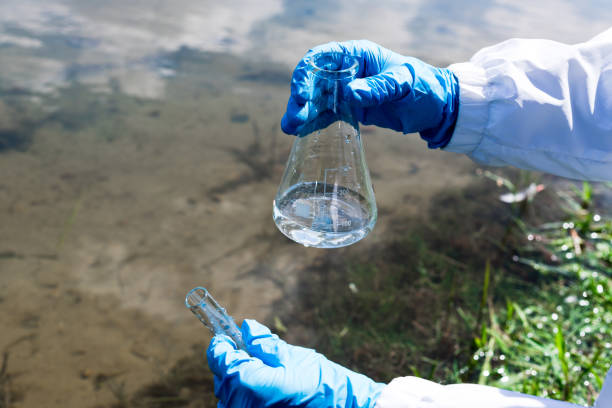Water is a crucial and needed part of our everyday lives. From drinking to cleaning to bathing, clean water is of paramount importance. Your plumbing is what gives you access to clean water. While plumbing and state water providers have filters, you still cannot ascertain the safety of your water.
Thus, regular water inspection is necessary. While there are DIY test kits available, opting for professional water testing is still recommended since it covers a range of chemical testing on your water source.
DIY vs. Professional Water Testing
When it comes to testing water quality and safety, you may wonder whether to opt for DIY water testing or hire a professional service. Both options have their merits, and it’s crucial to know how to consider the benefits and drawbacks of both options.
DIY water testing kits are readily available and typically come with instructions for collecting samples and conducting basic tests. They offer convenience and affordability, allowing you to get a general insight into your water quality.
However, the accuracy and reliability of DIY kits may vary, and they often provide limited information on specific contaminants. Complex issues or subtle contaminants may be missed, potentially putting your health at risk.
On the other hand, professional water testing services provide a comprehensive analysis of your water by qualified experts. They employ advanced techniques and calibrated equipment and follow strict protocols to ensure accurate results.
Professionals can test for a wide range of contaminants, including bacteria, chemicals, heavy metals, and more. They also offer tailored recommendations based on the findings, helping you address any identified issues effectively.
While professional water testing may involve higher costs compared to DIY kits, it offers peace of mind and a deeper understanding of your water quality. It is particularly recommended if you have specific concerns or suspect contamination due to environmental factors or nearby industrial activities.
Ultimately, the choice between DIY and professional water quality testing near me depends on your needs, budget, and the level of assurance you seek. For a comprehensive assessment and expert guidance, professional water testing is the preferred option.
Why Water Testing Should Be a Priority for Every Homeowner
Now that you have an idea of DIY and professional water testing, it is time to learn why you need either of the two.
- Water quality testing is essential in confirming the safety of your water.
One key reason for water testing is to confirm the safety of our drinking water. We all want to be at ease knowing that the water we consume is free from harmful contaminants.
Water quality testing allows us to assess the presence of bacteria, viruses, heavy metals, pesticides, and other pollutants that may pose a risk to our health. By identifying water contaminants, we can take appropriate measures to purify or treat the water to make it safe for consumption.
- It allows us to address water issues if there are any.
Moreover, water testing helps us address any existing water issues. It provides valuable insights into the overall quality of our water supply and can reveal problems such as high chlorine levels, acidity, or hardness.
By understanding these issues, we can implement the necessary measures to correct them, ensuring that our water is suitable for its intended uses.
- It lets you know where to use the water: for drinking, cleaning, cooking, etc.
Water testing also allows us to determine where and how we can use the water in our daily lives. Different water sources may have varying levels of quality and suitability for specific purposes.
For example, water suitable for drinking may not be ideal for irrigation or industrial use. Through water quality testing, we can identify the appropriate applications for our water supply, making informed decisions on how to utilize it best.
- Water testing lets you check water contaminants.
Another significant advantage of water testing is the ability to check for contaminants. Our water sources can be exposed to various pollutants, such as chemicals, industrial waste, or agricultural runoff. These contaminants can seep into the water supply, potentially compromising its quality.
Water testing enables us to detect the presence of such contaminants, allowing us to take prompt action to mitigate their effects and protect our health.
In conclusion, water testing is of utmost importance for various reasons. It confirms the safety of our water, helps us address existing water issues, guides us in using water appropriately for different purposes, and allows us to identify and address any contaminants that may be present.
By regularly testing our water quality, we can ensure that our water is safe, clean, and suitable for all our needs. Water quality testing is necessary to keep a healthy and sustainable water supply for ourselves and future generations.



